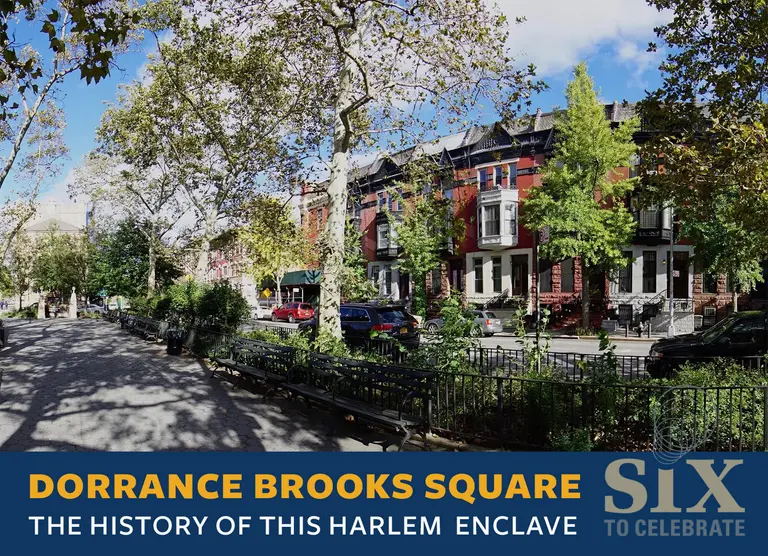September 4, 2019
This post is part of a series by the Historic Districts Council, exploring the groups selected for their Six to Celebrate program, New York’s only targeted citywide list of preservation priorities.
By many accounts, Dorrance Brooks Square is considered the first public square named for a black soldier. The little Harlem park, just east of the larger St. Nicholas Park, was dedicated in 1925 to honor African-American infantryman Dorrance Brooks for his bravery during WWI. Prior to that, the area was very much associated with the Harlem Renaissance, home to jazz musician Lionel Hampton and sociologist and civil rights activist W.E.B. DuBois, among others. Later, it became a key location for social and political gatherings and speeches during the Civil Rights era. Today, the quaint neighborhood is home to an incredibly intact collection of late 19th-century rowhouses, built at the time for upper-middle-class professionals, as well as four culturally and architecturally significant churches.
For all these reasons, the Dorrance Brooks Property Owners and Residents Association is advocating for an official landmark designation of the Dorrance Brooks Square Historic District, which would run up Edgecombe Avenue between West 136th and 140th Streets. To give 6sqft more information on this history of this neighborhood, the Association has mapped out the six most significant sites.
Learn all the history right here

